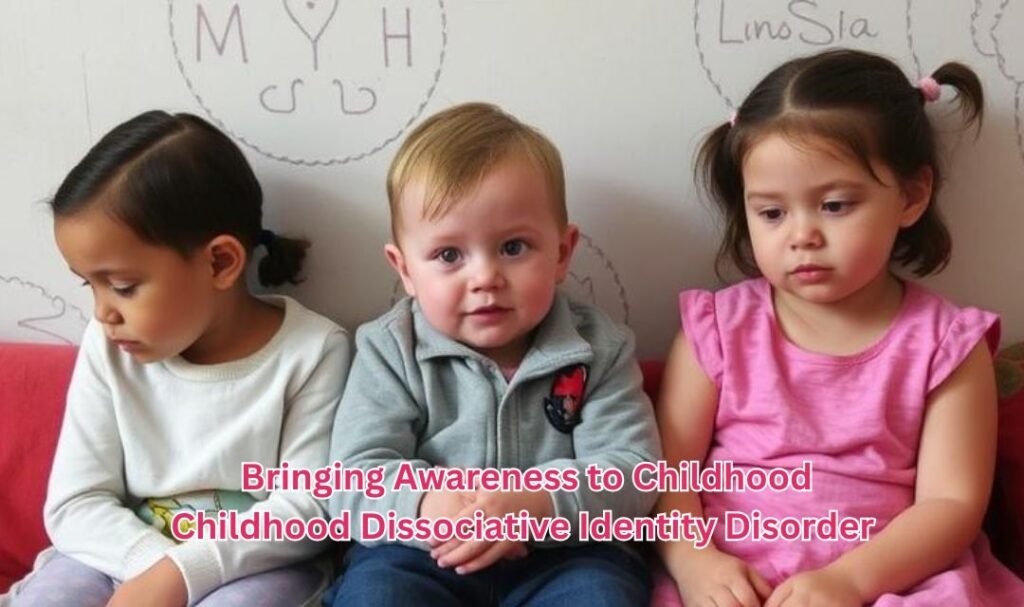Childhood Dissociative Identity Disorder
Dissociative Identity Disorder (DID), once known as multiple personality disorder, is a complex and often misunderstood mental health condition. While it’s commonly associated with adults, Childhood Dissociative Identity Disorder is where the journey typically begins. In most cases, the roots of DID are formed in early childhood as a coping mechanism in response to severe trauma, often involving abuse or neglect.
Christine Traxler’s novel, We, The Fortress, brings this crucial subject into the spotlight, illuminating the emotional and psychological battles many children face silently. Her work stands as both a compelling story and a call to action, urging readers to recognize and understand the signs and experiences tied to Childhood Dissociative Identity Disorder.
Through her characters and storytelling, Traxler brings empathy and nuance to a topic often surrounded by stigma and confusion. By presenting DID as more than just a clinical diagnosis, she opens a pathway for deeper understanding, compassion, and awareness, especially for readers seeking impactful mental health books that delve into the real-life struggles behind the headlines.
Dissociative Identity Disorder In Children
The symptoms of Dissociative Identity Disorder in children can be subtle, often mistaken for imaginative play, mood swings, or attention disorders. Children may report losing time, forgetting events, or displaying different mannerisms or voices without remembering doing so. These signs, while perplexing to caregivers, may indicate the emergence of distinct personality states, a defining feature of DID.
We, The Fortress introduces us to “The Fortress,” a group of personalities or “alters” living within the same individual. Traxler’s work offers a vivid, emotionally resonant look into what life might be like for a person struggling with this condition, starting from childhood. This lens allows readers to confront the reality that Dissociative Identity Disorder in children is not a myth or exaggeration, but a real mental health issue deserving of empathy and clinical attention.
By building characters that are both distinct and interconnected, Traxler effectively mirrors the experience of DID, encouraging readers to challenge their assumptions and learn more about how trauma shapes identity, especially during the formative years of life.
Dissociative Identity Disorder Books
Among the growing category of Dissociative Identity Disorder books, We, The Fortress stands out for its emotional depth and psychological authenticity. Unlike clinical texts, which can be inaccessible to the general public, Traxler’s narrative invites a broad audience into the world of DID without sacrificing accuracy or sensitivity.
This novel is a powerful addition to the landscape of mental health books, especially for those who want to understand complex conditions through storytelling. Traxler’s work humanizes mental illness, making it more relatable and less intimidating. Through fictionalized experiences grounded in psychological truth, readers gain insight not only into the condition itself but also into the resilience and adaptability of the human mind.
As more Dissociative Identity Disorder books emerge, there remains a need for titles that balance information and empathy. We, The Fortress does exactly that, giving voice to those who have long remained unheard, particularly those whose struggles began in childhood.
Conclusion
Christine Traxler’s We, The Fortress is more than just a novel, it’s a gateway to understanding a deeply complex mental health condition. By focusing on Childhood Dissociative Identity Disorder, the book encourages early recognition and support for children facing unspeakable trauma. Its portrayal of Dissociative Identity Disorder in children adds nuance to a topic often oversimplified, and its place among impactful Dissociative Identity Disorder books makes it a valuable read for anyone interested in learning more about trauma, identity, and healing.
For readers seeking meaningful, eye-opening mental health books, We, The Fortress is a must-read. Christine Traxler not only tells a gripping story but also helps dismantle stigma and fosters a much-needed conversation about the inner lives of those living with DID from childhood onward.
